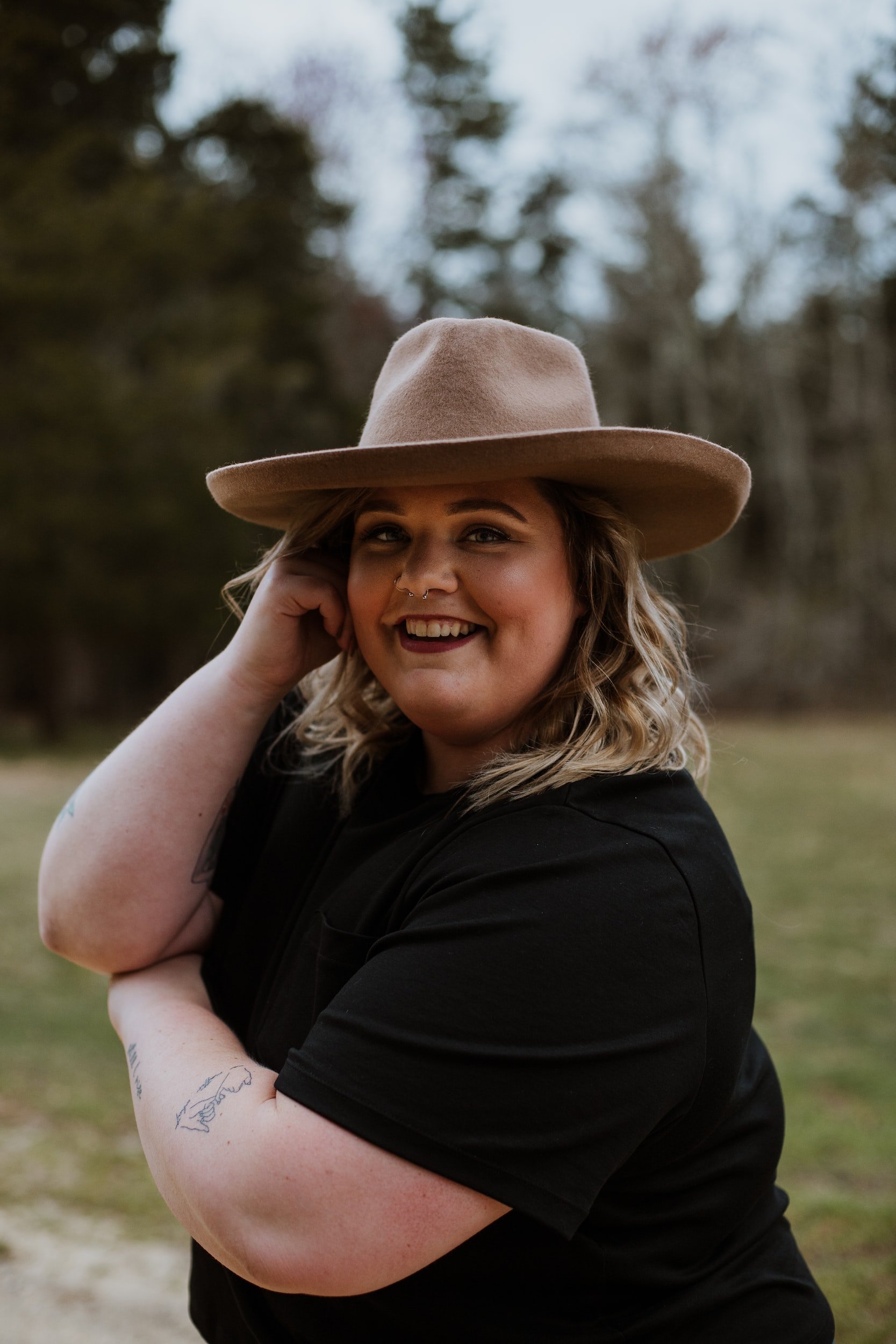
Disordered Eating and Body Image Issues
The struggle feels never-ending, but you can’t quite name what is going on…
When you think of body image issues, what comes to mind? Many people, may think of individuals with anorexia or bulimia. While these are two common examples of body image concerns, there are many other individuals who struggle with their body and food relationship. This may include people who diet excessively, binge eats, purge, over-exercise, or have negative thoughts about their bodies. If you are struggling with disordered eating or body image concerns, know that you are not alone. There is help available and it is ok to ask for help.
What is Disordered Eating?
Disordered eating is an umbrella term. It is used to describe any abnormal eating behaviors such as restrictive dieting, compulsive overeating, body shaming, and extreme body modification. Disordered eating can range from mild to severe, depending on the individual’s situation. It often has underlying psychological causes that need to be addressed through counseling or therapy in Missouri. Many individuals may find themselves emotionally or stress eating. Perhaps people may find themselves struggling to control food intake. For others, they may be eating as a result of unhealthy relationships, or restricting in an attempt to enhance self-esteem, "fit in", or gain acceptance.
How does this differ from an eating disorder?
Eating disorders, such as anorexia and bulimia, are mental health conditions that can be more severe than disordered eating. Symptoms of eating disorders involve extreme body image concerns and behaviors to control weight or body shape. Individuals struggling with an eating disorder may have a distorted body image and a heightened sensitivity to body size, and body shape. Additionally, with an eating disorder, you may have a diagnosis from a mental health professional whereas with disordered eating can show up from stress or anxiety.
I am worried that my body image issues are becoming unhealthy
If you are a young professional, college student, athlete, or under high levels of stress or anxiety, this can lead to disordered eating habits or body image issues. Additionally, trauma can also be an underlying concern of eating disorders and body image. If this sounds like a concern to your daily functioning, it may be time to reach out for help.
Will going to counseling for body image issues and disordered eating in Columbia, MO really help?
Talking to a mental health counselor who specializes in body image and disordered eating can be an effective way to address your body concerns. A body image and eating disorder therapist understands the complexities of what you are dealing with. Therefore, they can provide personalized strategies that meet your individual needs. Counselors will help you to gain insight into the root cause of your body image or an eating disorder, develop coping skills, and collaborate with you to build a treatment plan that helps you reach your goals. At Aspire Counseling in Mid-Missouri, we offer evidence-based treatment to help you thrive and develop skills.
Therapy Approaches Our Team Uses
ACT for Disordered Eating and Body Image Issues
Acceptance and Commitment Therapy is an evidence-based treatment to help you recover from disordered eating. It focuses on developing psychological flexibility and building awareness of body image by helping individuals to connect with their bodies and learn how to better manage triggering thoughts, feelings, and behaviors. The goal is to help you become more mindful and accepting of yourself in order to make healthier choices.
Dialectical Behavior Therapy
Dialectical Behavior Therapy has been backed by research to help you overcome and develop skills for body image and disordered eating. DBT focuses on developing body acceptance and building self-esteem by helping you to challenge your body image concerns. It also helps to bring awareness to the thoughts, feelings, and behaviors that lead to body dissatisfaction so that you can develop healthier coping skills and make changes in your life.
CBT for Body Image Issues and Disordered Eating
Cognitive behavioral therapy for body image issues and disordered eating can help you address the underlying thoughts and feelings associated with body image and eating behaviors. It will help you to recognize and challenge body shaming beliefs, gain insight into body image biases, and develop body acceptance. CBT can also help you to identify the triggers that lead to disordered eating behaviors so that you can learn healthier coping skills.
Mindfulness-Based Therapy
Mindfulness-based body image therapy can help you to become more aware of your body and its needs. This type of therapy helps to reduce body dissatisfaction by teaching relaxation techniques, body scanning exercises, mindful eating practices, and deep breathing. It also helps you to gain awareness of body shaming thought patterns and develop body acceptance.
Additional Topics We Address in Counseling for Body Image and Disordered Eating in Missouri
Self-Compassion
Mindfulness
Emotional Regulation
Cognitive Restructuring
Values Work
Motivational Interviewing
and More!
We know reaching out for counseling in Columbia, MO can be scary, but know we will support you every step of the way!
Seeking help for body image issues and disordered eating can be intimidating, but we are here to assure you that it is not something that needs to be faced alone. You deserve so much care and compassion - our caring eating disorder therapists are here to extend a listening ear and provide guidance throughout this journey. Though it might seem daunting, know that by reaching out for help, you are taking the important first steps towards recovery and a greater sense of self-worth.
Begin Counseling for Disordered Eating and Body Image Issues in Columbia, MO or Online!
At Aspire Counseling in Columbia, MO, we offer body image and disordered eating therapy to help you overcome any stressors, build body acceptance, and learn how to live a life that is meaningful. Our eating disorder therapists are here to provide evidence-based treatment so that you can gain insight into what triggers your body image concerns and develop strategies to help you feel more in control in a healthy manner. If you are ready to get started, follow these simple steps:
1.
Reach out to Aspire Counseling
First, you’ll speak to a member of our Client Care team. They will ask you a few questions about who you are and what you’re looking for. And, will take the time to match you with a therapist we think will be a great fit.
2.
Meet with one of our Eating Disorder Therapists
We know how important it is to find someone you feel comfortable with. So, all of our eating disorder therapists offer a free 30-minute consultation. This gives you the opportunity to ask as many questions as you’d like.
3.
Begin Overcoming Your Disordered Eating and Body Image
You & your therapist will come up with a plan for facing, disordered eating concerns and body image issues. This will be based on your needs, your therapist’s experience & what we know works best to treat your concerns.

It’s time to feel in control of your life again.
Related Blogs:
A Mini Guide to Find Space and Healing From Food and Body Image Issues
Athletic Identity and Finding Purpose (coming soon)
Body Image Issues in BIPOC and Black Populations (coming soon)
Disordered Eating: Setting Realistic Goals for 2023 (coming soon)
Other Services Aspire Counseling Offers:
Disordered eating and body image issues therapy isn’t the only service we provide in our Missouri counseling practice. We know life is complicated and you may be struggling with more than one issue. Our therapists at Aspire Counseling have a variety of specialties. So, we’re able to offer a wide range of mental health services. We can do so in our office in Columbia, our Lee’s Summit counseling office or online anywhere in Missouri. Some of our specialties include depression counseling, trauma therapy/PTSD treatment, counseling for college students, therapy for life transitions, counseling for caregiver stress, teen counseling, grief counseling, and more! We’re here to help.




